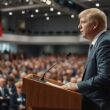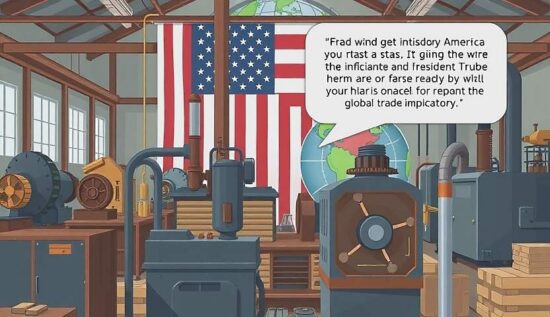US President Donald Trump has announced plans to impose tariffs of up to 100% on imported computer chips and semiconductors from foreign manufacturers, such as Taiwan. He also promised to impose massive tariffs on medicines and steel to encourage the production of these essential goods in the United States.
In a speech to Republican members on Monday, Trump stated that his administration will impose the tariffs “very soon” to bring the production of these essential goods back to the United States. The US President claimed that the production of computer chips and semiconductors has left the country and moved to Taiwan, taking with it 98% of the chip business.
“We want them to come back and we don’t want to give them billions of dollars, like in that ridiculous program that Biden had” Trump emphasized, referring to the chip and science law signed by former President Joe Biden in 2022, which allocated $53 billion in subsidies for microchip companies to boost the competitiveness of the US and rival China.
These remarks are the latest in a series of trade threats made by Trump in recent days. He has also threatened to impose a 25% tariff on imports from Canada and Mexico unless the two countries meet the US demands on border security and drug trafficking.
In response to Trump’s tariff threats, Taiwan’s Economic Minister said on Tuesday that the trade of semiconductors between Taiwan and the US is beneficial to both sides and described it as a “win-win model.” As the home of Taiwan Semiconductor Manufacturing (TSMC), the island is a crucial point in the global technology supply chain.
“Taiwan and the US semiconductor and technology companies complement each other very well, especially the model established in the US and implemented in Taiwan, which is a win-win business model for Taiwan and the US industry” the Economic Minister said, according to Reuters.
TSMC produces semiconductors for the largest US customers, including Nvidia and Apple. By 2024, North American buyers were expected to account for 70% of TSMC’s total revenue, according to Reuters estimates. Beijing views Taiwan as a part of its territory and rejects foreign interference, adhering to the “One China” principle.
While the US officially acknowledges the “One China” principle, which was the condition for the establishment of diplomatic relations in 1979, it still continues to supply arms to the island and works with the government in Taipei on military cooperation.





